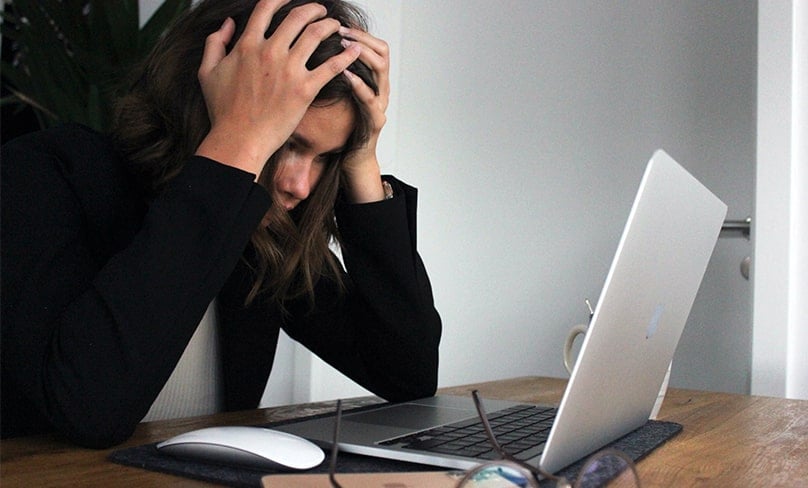
By Adam Wesselinoff and Peter Rosengren
Teacher burnout, staff shortages and the ongoing pressures of COVID-19 have driven Catholic teachers to strike twice in the last two months.
The Independent Education Union representing Catholic Schools will take joint industrial action with the NSW Teachers Federation on 30 June after an earlier strike on 27 May.
Mark Northam, Secretary of the IEU’s NSW-ACT Branch, told The Catholic Weekly prior to the IEU’s May strike that the union had never seen such high levels of support for industrial action.
“On this occasion the mood is overwhelmingly in the mid 90 per cent range to take industrial action. I’ve never seen the mood that’s currently in Catholic systemic schools,” he said.
The IEU is campaigning for a new enterprise agreement that seeks a 10-15 per cent pay rise over two years to keep pace with inflation, running at more than 5 per cent a year, and avoid a cut to real wages.
On 6 June the NSW Government announced it would lift the cap on public sector wage increases to 3 per cent from 2.5 per cent, including a 0.5 per cent increase in superannuation.
“Catholic diocesan school employers follow the NSW Government’s lead on salaries, even though they are not legally bound by NSW Government wages policy,” Mr Northam said.
NSW Minister for Education Sarah Mitchell said the increase was “one of the most generous public sector wage policies in the country”.
The strike was evidence that the unions were “hell-bent on disruption” because NSW has a Coalition government.
The IEU is also pushing for a reduction in compliance work, evalutations and other paperwork, a further two hours’ reduction of the teaching load, and pay parity with state schools for support staff.

“Some teachers are spending more time evaluating lessons than delivering the lesson,” Mr Northam said, adding that enrolments in teaching degrees across the nation have slid by 30 per cent.
A shortage of casual teachers has also seen some schools draft principals and assistant principals into classroom teaching, and combine classes together to be taught in school libraries or halls.
Dr Debra Phillips, an education lecturer at ACU specialising in teachers’ mental health, told The Catholic Weekly that Catholic school teachers were trained in the Church’s social doctrine and saw their profession as a vocation in service of the common good.
The pressures of COVID-19, fatigue and burnout have left many Catholic teachers feeling they were failing to provide the best for their students.
“There’s a psychological tension there: ‘For me to protect myself I must take this action, but at the same time I know I’m not doing the best for my students’.”
“So if there is a need for a strike, there’s elements of guilt that are there as well,” she said.
“There’s a psychological tension there: ‘For me to protect myself I must take this action, but at the same time I know I’m not doing the best for my students’.”
Dr Phillips said that for teachers the stresses of the COVID-19 pandemic have hardly abated, despite community expectations that things would return to normal.
Schools were expected to return to business as usual while teachers and students have continued to contract the virus.
“That situation did not improve, and now we’re going into winter, and as we know the rise in COVID infections will be there – so this situation will continue for the next few months,” Dr Philips said.
She is also concerned that burnout is leading early career teachers and even provisional teachers on university practicum to quit the sector prematurely, while seasoned late-career teachers are ageing out, leading to a loss of professional knowledge.
Dr Phillips is currently surveying mature teachers about the strategies they’ve used to remain resilient in the industry.
“It’s about finding the strategies and tips that older, experienced and mature teachers have used to remain alive in their schools and classrooms so we can pass that on to younger teachers before that wisdom is completely lost,” she said.
NSW Catholic Schools has predicted a 15 per cent staff shortfall by the end of the decade, and the National Catholic Education Commission’s submission to a recent federal inquiry into teaching said teacher shortages were reaching critical levels because of lengthy degrees and high demand.
“There is strong reason to think that currently observed and forecast teacher shortages will be exacerbated, and Australian schools will increasingly find it difficult to employ the teachers they require,” the NCEC said.
While parents will be inconvenienced by the industrial action, Dr Phillips said many teachers were themselves parents, and during the COVID-19 pandemic often had to juggle homeschooling their own children with remotely teaching classes.
The chair of the Council of Catholic School Parents NSW/ACT, Wayne Davie, said “Catholic school teachers have had difficult conditions to work through over the past few years”.
“The Council of Catholic School Parent NSW/ACT (CCSP) acknowledges those challenges and is grateful that they have provided our children with their education despite these challenges.
“The teacher strike on Thursday will again affect many parents and carers. They will have to make alternate arrangements or take time off work to look after their children.
“Parents and carers are hopeful that an agreement can be reached between the parties as soon as possible so that the focus can again turn to the education of our children.”
